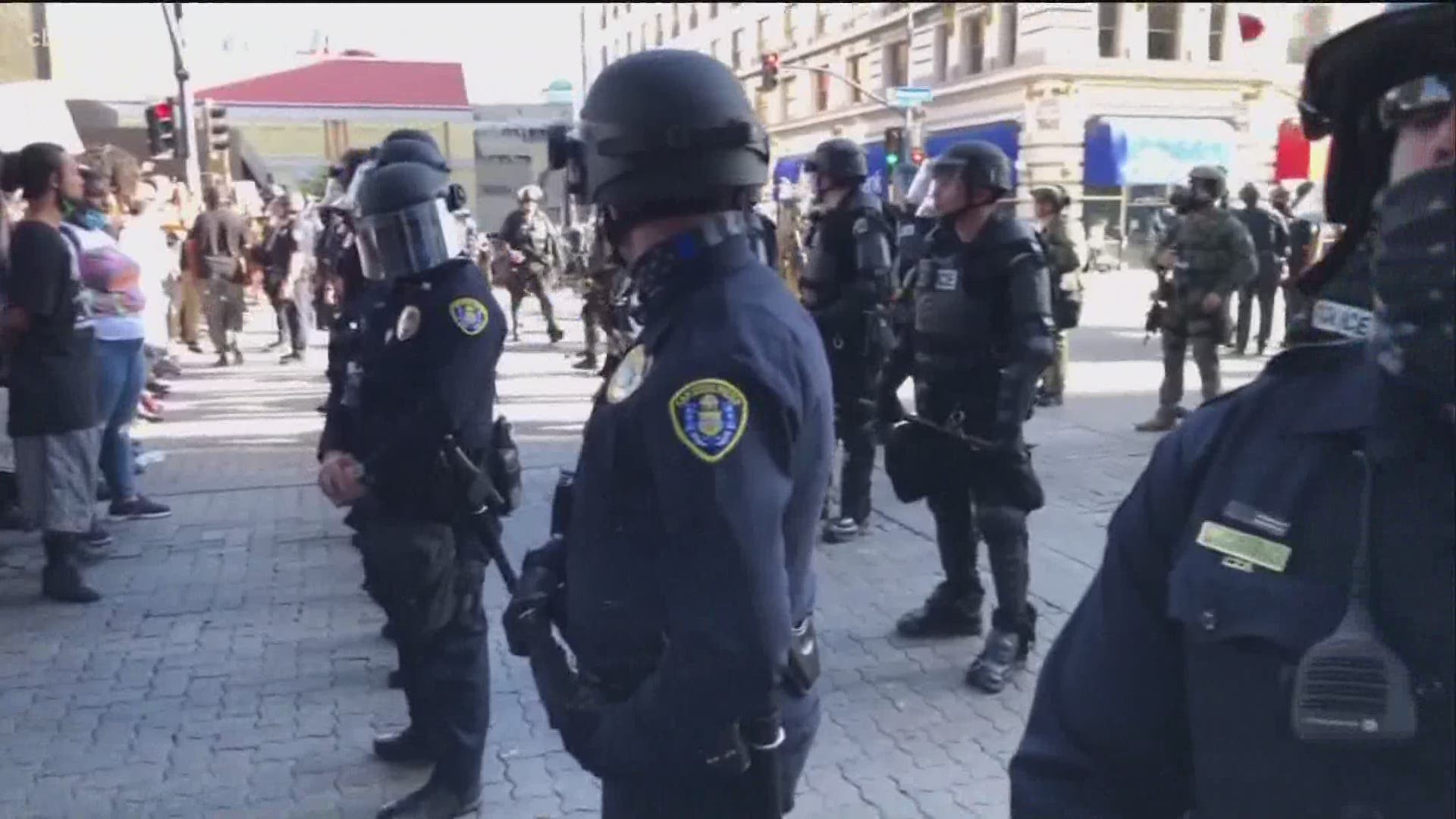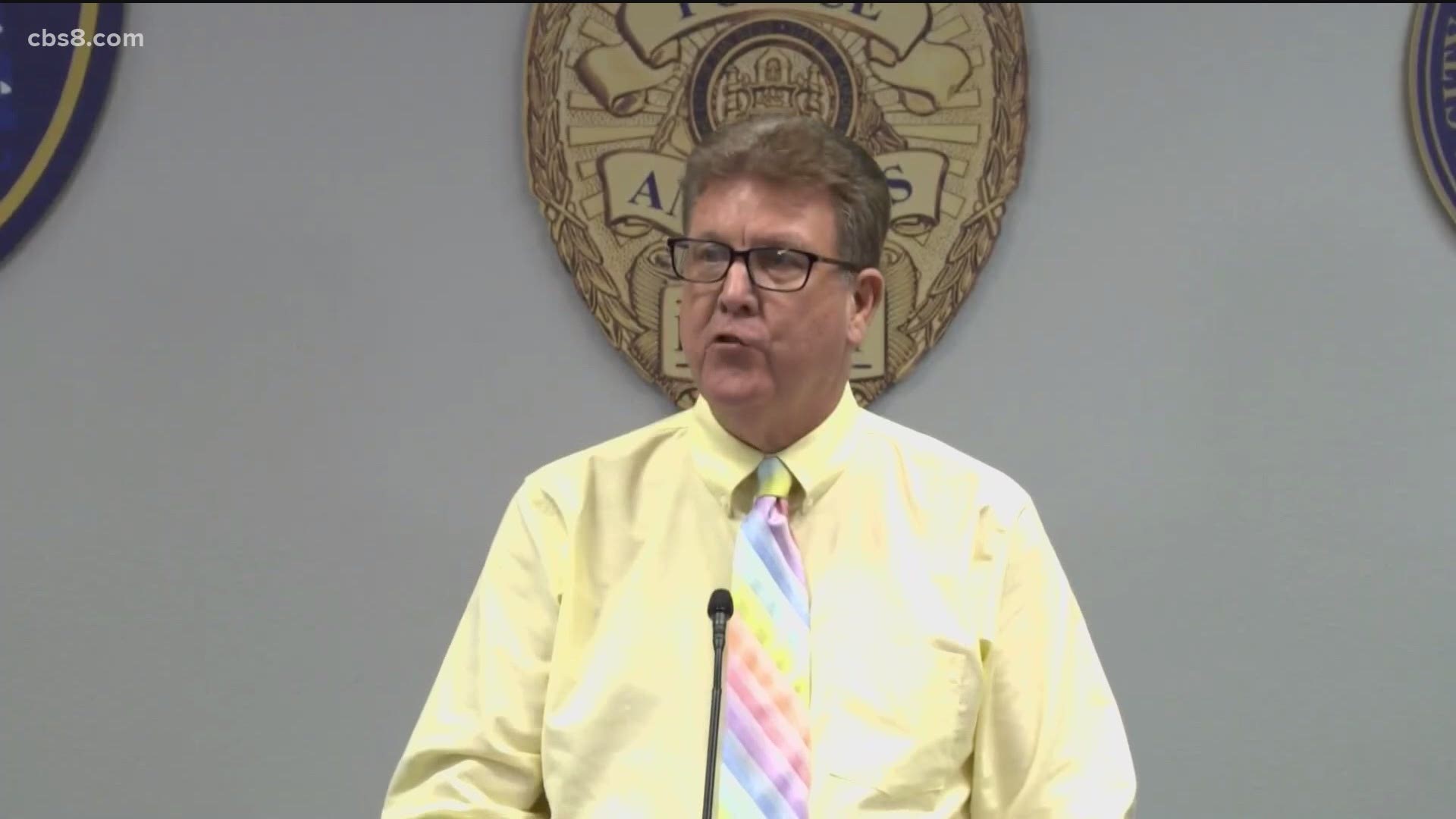SAN DIEGO — Mayor Kevin Faulconer and police Chief David Nisleit Wednesday announced the city's adoption of two "stand-alone policies" designed to address community concerns about excessive use of force on the part of the San Diego Police Department and the resulting potential for "unnecessary loss of life."
The new regulations will require officers -- not merely encourage them -- to pursue de-escalation of potentially violent situations by all means possible and to intervene if police personnel are engaging in excessive force, Faulconer said during an afternoon briefing at SDPD headquarters.
The rules, developed along with three local oversight bodies that held emergency meetings on the topic this month, will allow police to "reduce the use of force, further embrace the highest standards of accountability, increase public trust and protect against the unnecessary loss of life," the mayor said.
The policy recently was endorsed by the San Diego Human Relations Commission, the Community Review Board on Police Practices and the Citizens Advisory Board on Police and Community Relations.
“We’ve been listening. We’ve been listening a lot. We hear what the community’s concerns are,” said Chief David Nisleit, who added the reform was supported by the San Diego Police Officer’s Association, the union that represents the city’s officers.
The regulations require officers, "when safe and reasonable," to employ "techniques that can resolve situations, either through lower levels of force or no force at all," resulting in "lives saved," the mayor said.
The tactics include creating a "buffer zone" between a potentially violent subject and officers and calling on such "specialized resources" as the SDPD Psychiatric Emergency Response Team, according to Faulconer.
"I want to be clear -- force should always be the last option," the mayor said. "But SDPD can still use reasonable force levels if de-escalation tactics do not work."
The agency has long practiced techniques intended to "defuse" volatile policing situations, Faulconer noted.
"But now the department has separate, expanded and stand-alone policies that don't just suggest de-escalation," he said. "They require it."
Doug Case, a member of the Community Review Board on Police Practices said de-escalation really means communicating with people before using force.
Officers are now mandated to intervene if they see another officer using an excessive amount of force and report it to a superior. It is one of eight measures, called 8 Can’t Wait, that protestors demanded, and the city pledged to adopt.
“This new level of accountability will hopefully usher in a new culture of policing in San Diego,” said Samantha Jenkins, an executive board member with NAACP San Diego.
The reform follows weeks of nationwide and local protests demanding a change to policing in the wake of the death of George Floyd, who was killed last month during an arrest by Minneapolis Police.
“This is a policy to make sure that what happened in Minneapolis does not happen here in San Diego,” said Faulconer.
The city and its police department held several meetings with the NAACP and local community leaders to discuss reform. All pledged to continue working on the effort in the months ahead.
“Mayor, we thank you,” said Bishop William Benson with the Total Deliverance Worship Center. “Community, we know you’re asking for much more and we know there’s a lot of hard work that has to go into this, but this has to be celebrated as us going forward.”
Watch the full announcement below:
Those that spoke as part of the announcement on Wednesday:
- Mayor Kevin L. Faulconer
- Chief David Nisleit, San Diego Police Department
- Sharmaine Mosely, Executive Director, Community Review Board on Police Practices (CRB)
- Gerald Brown, Executive Director, Community Advisory Board on Police Practices (CAB)
- Doug Case, Community Review Board on Police Practices (CRB)
- Bishop Dr. William Benson, Total Deliverance Worship Center
- Samantha Jenkins, Community Advisory Board on Police Practices (CAB) and Executive Board Member, NAACP San Diego
- Stephen Grose, Human Relations Commission (HRC)


